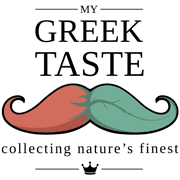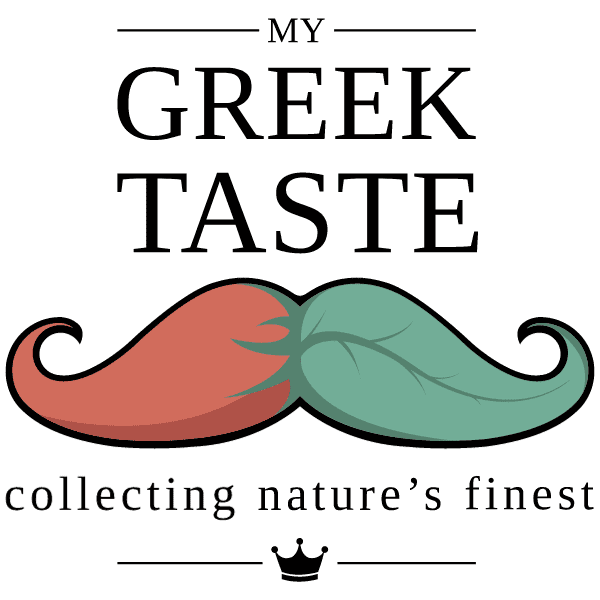Greek Organic Products Ioannina
MyGreekTaste contains a wide range of Greek Organic products. Through constant research, we have chosen very carefully, a list of products that combine quality with tradition, and at the same time they fully satisfy the daily needs of the modern way of living. Keeping always in mind the care for all of us but also for the environment, the purpose of myGreekTaste is to share unique goods with each other, to inform about interest topics or to exchange ideas, to adopt a healthy lifestyle, which of course always remind something from Greece. We are located in the center of Piraeus at Evripidou 42 Street but through our eshop you can very easily have all our products at your door very quickly
Greek Organic Products Delivery to Ioannina
If you are looking for the best Greek organic products in Ioannina, you will only find them at www.mygreektaste.com. Through our modern shipping method, in collaboration with ELTA Courier, you receive your orders directly at your door, in just 1-3 working days.
MyGreekTaste is a Greek e-shop, which sells both in Greece and abroad, quality Greek products, which fully meet the needs of the modern way of life, while maintaining a close relationship with tradition. In our catalog you will find healthy options that give energy, such as organic and vegan foods, juices, certified vegan wines, herbs, etc., all made by small Greek producers, which allow us to guarantee the uniqueness offered by a handmade good. Always taking care of every detail with respect for the environment, our packaging is fully recyclable.
History of Ioannina
![Ioannina (Greek: Ιωάννινα Ioánnina [i.oˈa.ni.na] (About this soundlisten)), often called Yannena (Γιάννενα Yánnena [ˈʝa.ne.na]) within Greece, is the capital and largest city of the Ioannina regional unit and of Epirus, an administrative region in north-western Greece. According to the 2011 census, the city population was 65,574, while the municipality had 112,486 inhabitants.[2] It lies at an elevation of approximately 500 metres (1,640 feet) above sea level, on the western shore of lake Pamvotis (Παμβώτις). Ioannina is located 410 km (255 mi) northwest of Athens, 260 kilometres (162 miles) southwest of Thessaloniki and 80 km (50 miles) east of the port of Igoumenitsa in the Ionian Sea. The city's foundation has traditionally been ascribed to the Byzantine Emperor Justinian in the 6th century AD, but modern archaeological research has uncovered evidence of Hellenistic settlements. Ioannina flourished in the late Byzantine period (13th–15th centuries). It became part of the Despotate of Epirus following the Fourth Crusade and many wealthy Byzantine families fled there following the sack of Constantinople, with the city experiencing great prosperity and considerable autonomy, despite the political turmoils. Ioannina surrendered to the Ottomans in 1430 and until 1868 it was the administrative center of the Pashalik of Yanina. In the period between the 18th and 19th centuries, the city was a major center of the modern Greek Enlightenment.[3][4][5][6] Ioannina was ceded to Greece in 1913 following the Balkan Wars. The city has two hospitals, the General Hospital of Ioannina "G. Hatzikosta", and the University Hospital of Ioannina. It is also the seat of the University of Ioannina. The city's emblem consists of the portrait of the Byzantine Emperor Justinian crowned by a stylized depiction of the nearby ancient theater of Dodona.](https://www.mygreektaste.gr/wp-content/uploads/2020/10/1920px-Τα_Γιάννενα_από_το_Μιτσικέλι-cropped.jpg)
The city’s foundation has traditionally been ascribed to the Byzantine Emperor Justinian in the 6th century AD, but modern archaeological research has uncovered evidence of Hellenistic settlements. Ioannina flourished in the late Byzantine period (13th–15th centuries). It became part of the Despotate of Epirus following the Fourth Crusade and many wealthy Byzantine families fled there following the sack of Constantinople, with the city experiencing great prosperity and considerable autonomy, despite the political turmoils. Ioannina surrendered to the Ottomans in 1430 and until 1868 it was the administrative center of the Pashalik of Yanina. In the period between the 18th and 19th centuries, the city was a major center of the modern Greek Enlightenment. Ioannina was ceded to Greece in 1913 following the Balkan Wars. The city has two hospitals, the General Hospital of Ioannina “G. Hatzikosta”, and the University Hospital of Ioannina. It is also the seat of the University of Ioannina. The city’s emblem consists of the portrait of the Byzantine Emperor Justinian crowned by a stylized depiction of the nearby ancient theater of Dodona.


